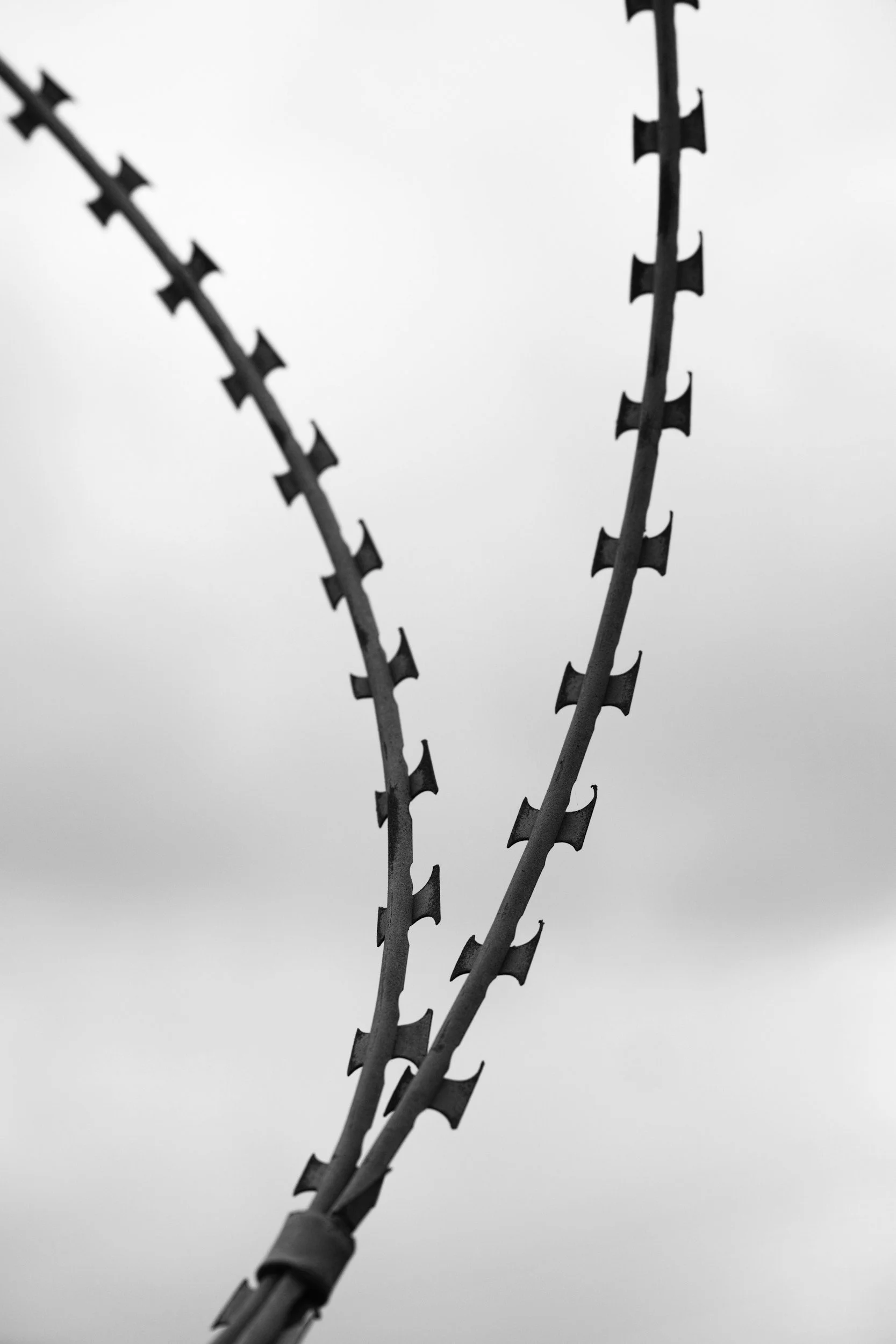Art, Activism, and Connection: Omowale-Ketu Oladuwa’s Octogenarian Poetry Tour Brought A Community Together
On Sunday, May 18, community members gathered at the Creative Suitland Arts Center in Suitland, Maryland, to experience poet, activist, and artist Omowale-Ketu Oladuwa’s Octogenarian Poetry Tour. From 3 to 5 p.m., attendees were immersed in an afternoon of liberating speeches, spiritual reflection, riveting art and poetry, and soul-stirring music.
Sharing the space with Oladuwa were fellow activists and creatives: author and poet Caroline Brewer, singer and storyteller Dr. Karen Wilson-Ama’Echefu, and percussionist Abasi Johnson.
Community members were seated in a semicircle. The Elders Ensemble, a collection of artists, sat within that arrangement. While sitting there, they gently informed the crowd that they were not there to perform, but to connect with them.
Oladuwa and his fellow guests identified themselves as the Elders Ensemble. The Abolition Working Group and PG County DSA sponsored the event. The event opened with a warm welcome and introductions, including a few words from activist Kurt Stand, setting the tone for an afternoon rooted in healing, resistance, and collective power. He emphasized the importance of being in a space that uplifts and empowers through creativity, especially “...creativity that [can] get crushed by the system.”
The Octogenarian Poetry Tour is a multi-city tour that, according to Oladuwa, “offers more than recitation. It’s a space for dialogue around identity, healing and collective action.” The free event features local poets and attendees who are encouraged to participate by sharing, reflecting, and engaging in collective action during each session. The tour continues in Rochester, New York throughout June. It visits West Olympia and San Juan Island, Washington, from July 13–26, and concludes in Indianapolis, Marion, Gary, and Fort Wayne, Indiana, during September and October.
An open poetry segment followed Kurt’s introductions. Elizabeth Tang of the Democratic Socialists of America presented a 2022 poetic piece by Kevin “Rashid” Johnson, called “Your Heroes Ain’t Mine.”
“Benjamin Franklin the whole lot / Founding fathers you love a lot/ Slavers mass murderers political liars / By whom Adolf Hitler was inspired,” read Tang as the audience listened. Johnson wrote the piece to challenge people’s understanding of America's heroes.
Johnson is an incarcerated revolutionary, artist, writer, and self-taught jailhouse lawyer. He has been incarcerated for more than two decades. He has used his writing to speak out against the abuse within the prison system. While incarcerated, he wrote about his abuse at Red Onion State Prison in Virginia. He was then transferred to South Carolina, where he was hogtied, wrist-to-ankle, and severely injured. According to Virginia Public Media, in a previous conversation between Johnson and another incarcerated man, Ekong Eshiet, he stated that “…the hard and inhumane conditions at Red Onion were so intolerable, that he and others were setting themselves on fire in desperate attempts to be transferred away from the prison.” The next poem came from audience member Marcellus Morris, who was also incarcerated, further grounding the event in personal experiences of prison and testimony.
“For me, hope is a false concept. I don’t ride the wave of hope. I ride the wave of what is.”
Elders Ensemble played musical interludes throughout the afternoon using the maracas, drums, and flute. The music served as both a spiritual release and self-reflection for the ensemble members and audience alike. After the poetry readings, the Elders Ensemble led a meditative tribute to the ancestors by inviting attendees to call out the names of loved ones and influential figures who had passed on. The atmosphere intensified as Abasi Johnson played gentle percussion that resembled a güira, a percussion instrument from the Dominican Republic. Oladuwa led the room in collective humming. The humming, he said, is a way to announce that you exist. Names such as Breonna Taylor, Tamir Rice, and Sandra Bland were spoken aloud, alongside the names of personal family members and friends. The elders also paid homage to Malcolm X, reminding the audience of his enduring legacy and the importance of carrying his teachings forward.
A compelling conversation between activist and organizer Imara Crooms and Oladuwa followed. The dialogue offered a deeper understanding of Oladuwa’s life journey.
“Death row saved my life,” he said during his discussion of how being wrongfully convicted of murder at the age of 21 and spending five years on death row changed his life. “It was the best thing to ever happen to me because I woke the fuck up.”
While on death row, he read between 500 and 600 books and reflected on how he ended up there. Although Oladuwa was born in Indiana, he touched on reclaiming his African identity during his incarceration, stating, “I returned home to my African self. I returned home to my Yoruba identity.” He was released from captivity in 1971.
Oladuwa offered critiques of societal norms like putting on a persona to get by in life. “Never pretend to be something else to be safe,” he said. He even expressed skepticism toward conventional ideas of hope.
“For me, hope is a false concept,” he said. “I don’t ride the wave of hope. I ride the wave of what is.” He also shared his understanding of socialism as a way of living: “It means we’re living in community,” he explained. "[It means] speaking to one another, being vulnerable with one another, and not judging.”
“It was very liberating and necessary. It was deeply healing.”
He challenged the traditional idea of protesting as a means of change by arguing that those in power have already calculated its limits: “They want you in the streets protesting because they know it won’t do anything,” Oladuwa explained. “We have to wake up from the dream of America.”
Crooms added to these insights, offering reflections of his own and guiding the conversation in a way that invited audience engagement. One attendee asked a question on how to contribute to the fight against oppression — with Oladuwa’s response being, “If you want to stand in solidarity, stand next to me. Do the work, don’t just say it.”
The program continued with more from the Elders Ensemble, including a spirited call-and-response from Brewer while reading passages from her children’s book, Say Their Names. Her interaction with the audience was nurturing and invigorating, bridging the emotional weight of the content with a sense of resilience.
Toward the end of the event, Oladuwa read the poem “8 Minutes and 46 Seconds” by Dr. Donna Aza Weir-Soley. The piece, inspired by the murder of George Floyd, served as a sobering reminder of the violence that continues to claim Black lives. The event concluded with a moving performance by Dr. Wilson-Ama’Echefu, who sang “Oh, Freedom” with such passion that she rose from her seat, inviting everyone to sing along. Her voice filled the room and encouraged everyone in song, bringing the afternoon to a close.
The Elders Ensemble emphasized connection throughout the event, and it was truly raw, unfiltered, and deeply human — leaving many feeling inspired, motivated, and spiritually renewed. Attendee Amrita Singh said: “It was a very transformative event.”
“It was very liberating and necessary,” said Rachel Hu. “It was deeply healing.”
Read More Of Our Coverage





